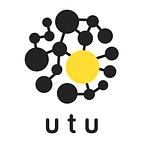Decentralized finance is one of the hottest areas in blockchain right now, and blockchain is one of the fastest moving areas of tech today. Re-imagining traditional finance in a decentralized and trustless manner is never a straightforward path and is usually done in a fast paced feedback loop. There are a lot of compromises and workarounds that need to be made especially in the early stages in order for things to work. One of the main compromises is the trust, or more precisely, the lack thereof. The whole industry is designed in such a way that the trust is minimized and shifted to the end user and as a consequence loans in DeFi are over-collateralized, that means you need to lock 150% of value in a smart contract to get the loan going.
There are many other mechanisms that try to remove trust from the equation like rollups and flash loans — a concept where the whole “deal” happens within one transaction. The deposit, collateral, arbitrage, and repayment happen in one transaction. If the loan is not repaid in the same transaction the transaction doesn’t happen. Very innovative concept but still the fact remains — trusting someone or something is very much avoided at all cost because of on one hand anonymity and on another trustlessness as an ideal in this space.
However, what we see is that people trust the code that can be audited, people still trust the reputation of the people in the industry, the latest craze of Yearn Finance was built based on Andre Cronje’s reputation and past track record not to mention YAM’s and all the others. Capital will find the easiest path to the market and try to maximize gains at any cost, especially in the automated world of deFi.
The dark side of “trust” has shown it’s ugly face with the recent example of Uniswap fork — SUSHI and it’s pseoudo-anonymus leader ChefNomi, where caution was completely ignored and 1.7 Billion was locked at peak based on a promise of trustworthiness (and profits of course). The list goes on an on… BASE, Sverwe, harvest …. the list of projects that people “trust” for some reason just goes on and on. To paraphrase :
Decentralized isn’t really decentralized
Trustless isn’t really trustless
Audits aren’t really audits
Market makers aren’t really market makers.
What we propose is to harness and channel that “trust” and make it so that people CAN use it but at the same time have it aligned with the values of the whole DeFi community — using trust in a trustless way. Might sound as an oxymoron but it’s really simple. We believe if this is implemented properly it would expand the whole DeFi market considerably and create completely new and currently unimaginable opportunities. Just like it was hard to imagine the magnitude Uniswap would have today, what’s a YFi, what is yield farming or what a flash loan is to 2018 community members.
What we propose is to “tokenize” trust by using an oracle directly in the smart contracts of the new instruments, the kind that serves as a proof that a specific person has a reputation score of X and there are Y people willing to stake their reputation to allow the person X to get a more favorable rate of collateralization, better yield or some other benefit. Person X also has a history of transactions that “proves” him to be a good debtor and thus his collateral could be 140% instead of 150 or he would be allowed to do loans in a completely different way and by doing this in a completely private but at the same time provable and auditable way.
The full details of our approach can be find in our Enabling DeFi Concept Note and V3 of our White Paper.
It’s important to know that the idea behind UTU was born in 2017 after 4 years of gestation in MARAMOJA and then transformed in 2018 with our participation in Zeroth.AI, æternity Starfleet, and #Chain. Read our Origin Story. We could see that there is something major brewing under the surface and we could sense the underlying need for something like UTU trust token. It took us almost two years of dedicated work and close observation of the market to finally nail the value proposition — 7 years to become an overnight success.
About UTU
At UTU we believe in a more human-friendly internet. We are pioneering digital models of decentralized trust built around human beings and how we naturally trust. UTU’s vision is to become the trust infrastructure of the entire internet, replacing anonymous star ratings, reviews, and scores as the de facto trust mechanisms of our digital lives. We do this in service of our Mission — To bridge the gap between how we trust in real life and how we are asked to trust online — to make the internet a safer, more trusted place to gather, share, work, and trade.
UTU is kiswahili for “Humanity.” It reminds us of our home in Kenya and for whom we build this project. We currently have a team of 40 at our HQ in Nairobi and R&D collaborations with the Agents, Interactions, and Complexity Group at the University of Southampton in the UK as well as the newly established UKRI Trusted Autonomous Systems Hub.
UTU and our subsidiaries have been featured variously in international media, including Pitchbook, NPR, TechCrunch, Analytics India, Aithority, Disrupt Africa, How We Made it in Africa, and others. We won the 2019 East Africa Regional Championship of the Pegasus Tech Ventures Startup World Cup and have been named a 2020 Hello Tomorrow Deep Tech Pioneer.
Check us out on the Web, Twitter, and join us on Telegram in decentralizing the future of digital trust.
